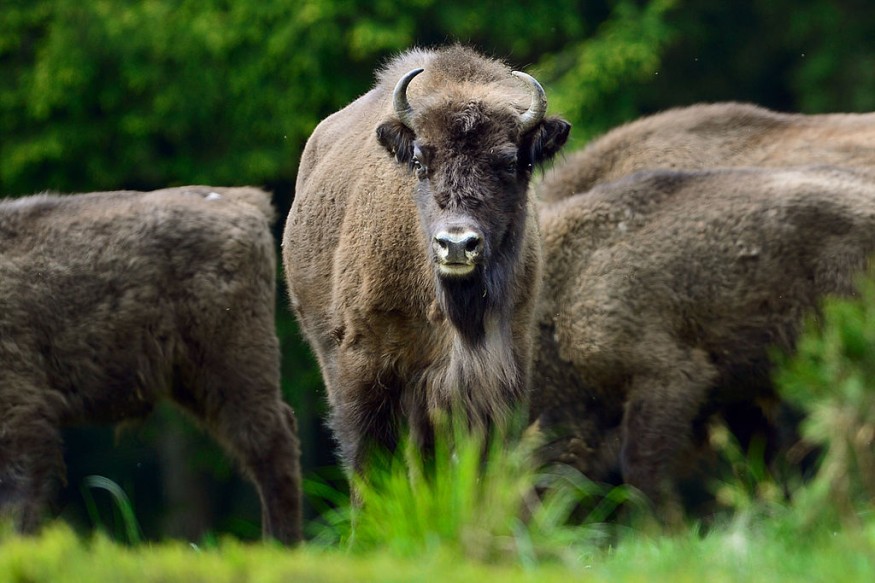
Bisons have been absent in the UK wild for thousands of years, but these "gentle giants" have returned, thanks to a special project called the Wilder Blean project.
The pioneering scheme aims to reintroduce these mammals to one of south-east England's largest areas of ancient woodland, and "transform a dense commercial pine forest into a vibrant natural woodland," as per The Guardian.
It is also considered an experiment to see how well they can act as natural "ecosystem engineers" and restore wildlife.
Four European bison have been released this morning into an ancient woodland in Kent, marking the first time the giant herbivores have been introduced to the wild in the UK. This is a major milestone for proponents Tom Gibbs and Donovan Wright, Britain's first bison rangers, of rewilding UK landscapes.
A Tool to Tackle Climate Crisis
The Wilder Blean project near Canterbury is a £1,575,000 "very special" project and collaboration between the Wildwood Trust and the Kent Wildlife Trust to bring bison back to Britain. The species came "within a hair of extinction" less than a century ago, saved only by captive breeding and rewilding in Poland, the Netherlands, Romania and elsewhere, according to Discover Wildlife.
Today, their gene pool has "dwindled to a puddle", so establishing new herds reduces inbreeding and improves the species' resilience. "Because of the genetic bottleneck, we've got to be quite careful with them," says Don. "They were downgraded from Vulnerable to Near Threatened [IUCN Red List status] in 2020, but still need to be protected."
But more importantly, the project may restore a centuries-old wildlife habitat and help tackle climate crisis.
"The restoration of naturally functioning ecosystems is a vital and inexpensive tool in tackling the climate crisis," said Evan Bowen-Jones, CEO at Kent Wildlife Trust (KWT). "We want Wilder Blean to mark the beginning of a new era for conservation in the UK. We need to revolutionize the way we restore natural landscapes, relying less on human intervention and more on natural engineers like bison, boar and beaver."
Paul Whitfield, director general of Wildwood Trust, added that it will also give people in the UK a chance to experience bison in the wild, for the first time in over a thousand years.
Return of the Bison
According to Paul, the project gives a really powerful, emotional, visceral experience on something "we've lost in this country", after the bison have gone almost extinct in the wild a century ago, but are recovering through reintroduction projects across Europe.
The bison will come from wildlife parks where they have experienced more human interaction and less space to roam freely: an older female from the Highland wildlife park in Scotland, which will be the matriarch of the herd, plus two young females from Fota wildlife park in Cork, Ireland.
"We could not have asked for a better matriarch," said Donovan. "She's very, very calm, she's very confident." Tom added that they cannot wait to see how the three female bison start to shape the Blean over a five-20-year period as they settle into their new home and start throwing their weight around.
Related article : More than 30 Sea Turtles Found Injured or Dead with Stab Wounds on a Remote Island in Japan
© 2026 NatureWorldNews.com All rights reserved. Do not reproduce without permission.





